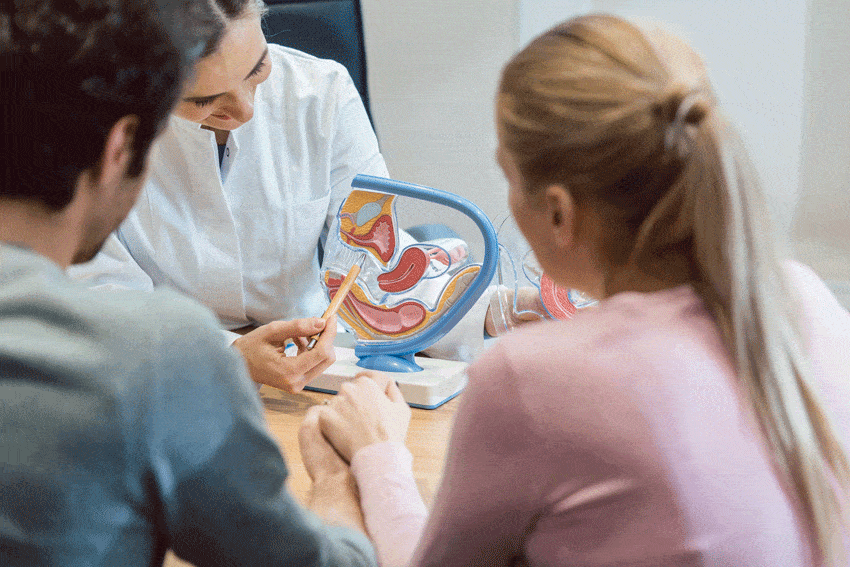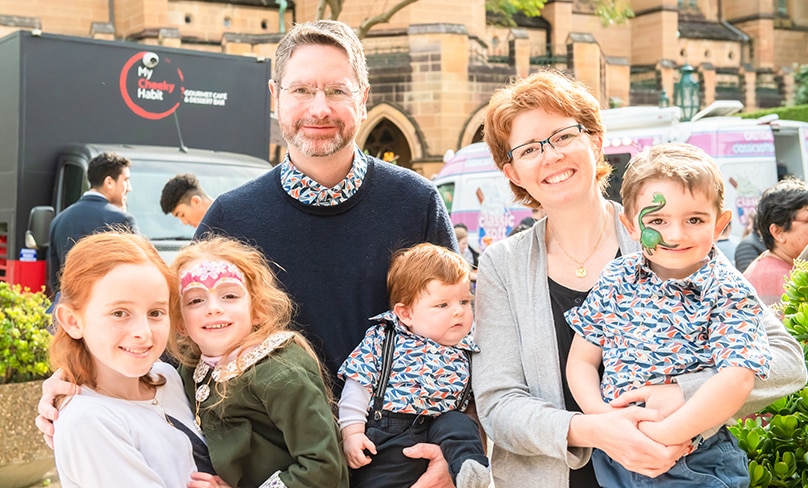
The new census data will provide better insight into why our fertility rate is in freefall, said the lead scientist of a longitudinal study of a group of Aussie millennials.
Dr Jonathan Smith, a senior research fellow at the Australian Catholic University and chief investigator on the Our Lives project, told The Catholic Weekly there had been a sharp decline in the birth rate over last decade and that the pandemic would likely exacerbate the “concerning” trend.
Census data confirmed that while family composition had remained fairly stable since the 2016 count, there was a one per cent increase in the number of couple familes without children. The proportion of young Australians aged under 20 declined from 24.8 per cent in 2016 to 23.9 per cent in 2021.
Results showed a trend continuing towards an older population, for example the proportion of Australians aged 65 and over rose from 15.8 per cent in 2016 to 17.2 per cent in 2021.
The birth rate, indicated by the average number of babies born to a woman over her lifetime, has been in freefall in the last few years, hitting a record low of 1.58 in 2020 according to the Australian Bureau of Statistics.
“… what we have seen with COVID is a heightened uncertainty about what it would mean to start a family or have another baby …”
The replacement rate is 2.1, and experts say that with a growing decline comes an ageing population and workforce shortages among other challenges.
“It is certainly a concern. Often what drives fertility rates is a perceived sense of security and stability. And what we have seen with COVID is a heightened uncertainty about what it would mean to start a family or have another baby, particularly in the healthcare system, but also in the labour market, and where having a sense of residential permanency is becoming more unaffordable,” Dr Smith said.
“Immigration is a driver of fertility as well, as immigrants often come from countries with higher fertility rates and aspire to a larger family, and obviously during the pandemic that has come to a standstill too.”
Dr Smith said another immediate stand-out in this census is a significant decline (from 825,000 to under 775,000) in the numbers of people aged over 55 providing care to other people’s children.
“I think it illustrates the impacts of pandemic restrictions on families as well as underscoring the importance of addressing the need for flexible and affordable childcare.”
He says a big part of the solution is simply to make it easier for couples to start and raise families.

“What we are seeing in our study as our cohort is now approaching their 30s is very much a story of pragmatic kind of adaption to the pressures in terms of people’s decision to delay family formation.
“But it’s not something that comes without a personal toll or personal costs, particularly for women when it may have an impact in the end on not being able to achieve those aspirations for a family that they had.”
Professor Bryan Turner from ACU’s Institute for Humanities and Social Sciences said that Australia’s fertility decline is part of a global trend with most Western countries below replacement levels, with many contributing factors depressing the rate including transformation of family life and marriage and other social changes and expectations, as well as economic and political pressures.
Apart from inviting a wave of immigration, what needs to happen is for couples is to be supported in having children by governments offering better financial support including tax relief for families and other incentives, he believes.
For Cherrybrook couple Yann and Emmanuelle Le Barz, raising their four children is more than worth the challenges, misunderstandings, and worries they have faced.
“The amount of love and joy that a newborn bring into the house overcomes all the hardship, all the financial impact and so on.”
“We trust God enough to think that there is a plan. There will always be worries,” said Emmanuelle, 42, who says they decided to have one child and then “see how we go”.
“Certainly it is challenging financially once you have more than two or three children, we have moved house, upgraded cars.
“It’s also challenging when people who are not of faith looked at us as though we are saints, when we know we are not.”
“I would tell young couples to not wait,” said Yann, 43.
“The amount of love and joy that a newborn bring into the house overcomes all the hardship, all the financial impact and so on.
“You just feel like that’s why you were here in the first place. As a father, I think you only really become the head of the family when you have kids. You embrace your role as a father and you feel fulfilled.”
